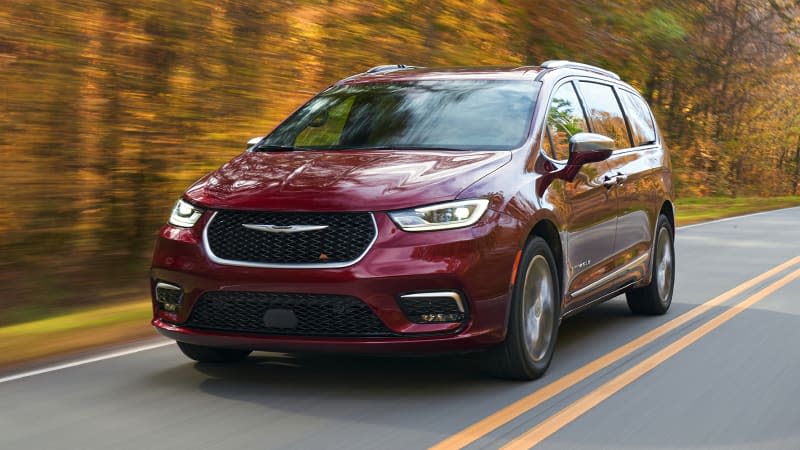Stellantis dealers plead that letting Chrysler die is not an option
Executives and dealers have recently cautioned that a dark cloud looms over Chrysler's horizon, and figuring out why doesn't require an MBA from Stanford. And yet, Stellantis dealers say bright days could be ahead, if only the company reinvigorates the Detroit-based brand with long-awaited and much-needed new products.
"This whole thing started with Chrysler. I don't want to get emotional about a brand, that's not the case. But, I don't want to see a brand like that left at the sideline and just thrown out to pasture," said David Kelleher, the head of the Stellantis National Dealer Council, in an interview with industry trade journal Automotive News.
Kelleher added he would feel "violated" if the 96-year-old carmaker shut down. Keeping it around is relatively easy, but transforming it into a thriving business is far more difficult. Years of underinvestment have crippled the brand. It's almost exclusively dependent on North America, where it sells two models: the 300 and the Pacifica/Voyager duo. Sales in the United States totaled 110,464 units in 2020, down from 126,971 in 2019. To add perspective, Ram, Jeep, and Dodge sold 624,642, 795,313 and 267,328 units, respectively, in 2020.
While enthusiasts and analysts understandably worried Chrysler would die under Stellantis, Kelleher opined that the merger between Fiat Chrysler Automobiles (FCA) and PSA Group can make the brand stronger. Products and technology from the French side of the partnership can be leveraged to help Chrysler expand its range and increase its sales while keeping development costs in check, he said. He stopped short of revealing which vehicles he has in mind, but his comments are interesting because PSA's lineup is almost entirely made of up small, European-flavored cars that are diametrically opposed to the models Chrysler's reputation is built on.
Hatchbacks are dropping like flies in the American market, so putting a Chrysler badge on, say, a Peugeot 208 and bringing it to America is out of the question. Wagons are unpopular, too, which leaves crossovers and SUVs. Oddly, the Chrysler brand is not represented in one of the most popular market segments in the United States. PSA doesn't dabble in burly SUVs, like the Jeep Grand Cherokee, but it does small crossovers reasonably well.
Could Chrysler move into the space occupied by the Toyota C-HR and the Hyundai Kona, among others? It's not unfathomable, and it would make sense from a business standpoint, though it's pure speculation. More information about Chrysler's future models (whether they're based on PSA models or merely built with PSA components) will emerge in the coming months, assuming Kelleher gets his wish and Chrysler is saved.
Stellantis recently spared another one of its problem children. Lancia, a moribund Italian brand abandoned by its former parent company during the 2010s, will survive after all. It will be lumped with Alfa Romeo and DS under the premium brand umbrella, and by 2025 it is expected to launch its first new car since 2011.
You Might Also Like




